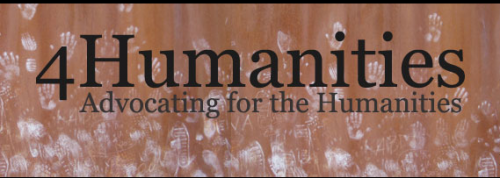4Humanities is on a Mission

One interesting thing about the digital world is that web-based media make it very easy to gauge the level of buzz around a news item well before that happening registers an actual impact on the world at large. Among the biggest recent news items in the humanities, on that note, is the unveiling of the new 4Humanities site hosted by the University of Alberta and spearheaded by UC Santa Barbara English Chairman Alan Liu. The initiative's launch has, naturally, generated a lot of buzz and probably a comensurate amount of good will over the past week in the digital humanities community, but what are we likely to see from 4Humanities in the way of an impact down the line?
That's an open and rhetorical question, but one that may be particularly appropriate in light of the way that the new site has positioned itself as it enters a field of similar and--in a good number of cases--often overlapping (or interlocking?) initiatives. More than most, 4Humanities wears its advocate's heart on its sleeve--or its header, even. The site styles itself as a humanities advocacy project "powered by the digital humanities community" and represents, in a significant way, an inversion of the formula that has been typical of many recent entries into the digital humanities fold.
Whereas the promise of the future of the humanities is so often touted as what the digital world can bring to humanistic scholarship (opening new doors, promoting access, saving the field from irrelevance, and so on), 4Humanities boldly suggests that the real potential to be realized lies just as much, in fact, in what humanists can bring to the digital world. This is perhaps a subtle distinction, but surely an important one. Consider two selections from the 4Humanities mission statement:
"4Humanities began because the digital humanities community--which specializes in making creative use of digital technology to advance humanities research and teaching as well as to think about the basic nature of the new media and technologies--woke up to its special potential and responsibility to assist humanities advocacy. The digital humanities are increasingly integrated in the humanities at large. They catch the eye of administrators and funding agencies who otherwise dismiss the humanities as yesterdays news."
And also:
"Many people care about the humanities, not just in the educational and cultural institutions directly affected by the recent cutbacks, but also in business, government, science, media, politics, the professions, and the general public. They believe that society will be poorer, not richer, without the humanities to help us grasp, and evolve, what it means to be “human” and 'humane' in today’s complex world."
Liu and his associates, many of whom are already well known for their work and advocacy in the (digital) humanities, have a clear awareness of the dialogic relationship that needs to emerge between the humanities and new media technology. The latter can serve the former (not only in promoting new scholarship, but--and 4Humanities is frank on this--in helping to "catch the eye of administrators and funding agencies") so that the former can promote the wisest, best, and if I may, most humane development of the the latter. All in all, it's refreshingly honest and well put and, I think, deserving of our attention.